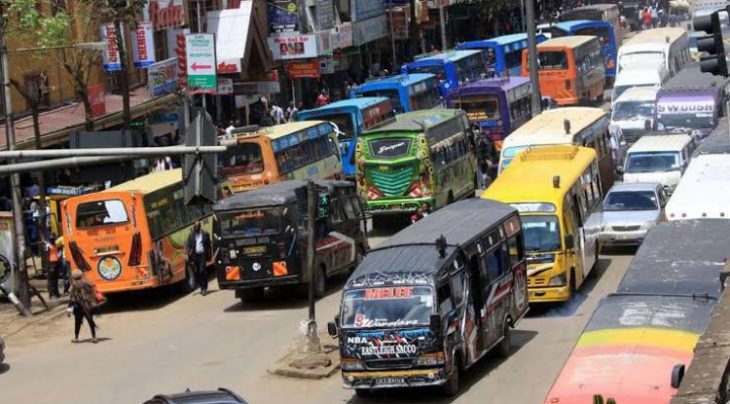Why days are numbered for Ruto advisors

Key figures in President William Ruto’s Cabinet and close allies of top Cabinet Secretaries are likely to lose their hefty salaries as the government moves to save Sh1.1 billion set aside for advisers this financial year.
Also set to go as the government embarks on budget cuts are advisers to county governors, a majority of them political allies and even close relatives.
Ruto last Friday announced a raft of austerity measures to reduce government expenditure following his decision to withdraw the Finance Bill 2024, including a directive to reduce the number of advisers in government by half.
“The number of advisers in government shall be reduced by 50 percent within the public service with immediate effect,” he declared during his address to the nation on the budget crisis.
The cuts are part of the President’s broader strategy to eliminate non-essential government expenditure and improve services.
The decision has caused panic in the government, especially at State House and government ministries, with many advisers worried that they will be targeted in the purge.
Leading the President’s team based at State House is renowned economist David Ndii, who chairs the Council of Economic Advisers.
In a recent interview, Ndii revealed that his team had up to 10 advisers and 15 support staff in his office.
“10 Cabinet Secretary/Principal Secretary level advisers, of which 5 PhDs (4 professors) and 15 support with zero bodyguards,” he was quoted as saying.
They include former Treasury Cabinet Secretary Henry Rotich, who became lead adviser and head of the Office of Fiscal Affairs and Budget Policy immediately after his corruption case was dismissed.
Rotich’s office was allocated Sh100 million in the current budget, with much of it going to travel expenses.
Political hangers-on
Another former CS, Monica Juma, is the national security adviser, while former Industrialisation CS Adan Mohamed is the chief of strategy execution at State House. Also on the Council is Prof Vincent Machuki and Harriet Chiggai, the Presidential Advisor on Women and Gender Affairs. In the Agriculture docket, for instance, there are six advisers to the President, led by Augustine Cheruiyot (agribusiness and finance); Abdi Guliye, a former commissioner with the electoral agency IEBC, who advises on animal production; and Dominic Menjo (food security and animal production).
Others are Nancy Laiboni, (agricultural economics), Henry Kinyua (crops/value chains) and Stephen Otieno (cooperatives).
Some of the CSs, according to sources well versed on the operations of the government, have over 10 advisers, most of them nothing more than political hangers-on and wheeler-dealers with few technical or intellectual competencies to discharge the roles they are paid for.
Personal chef
One CS from Eastern Kenya is said to have employed a personal chef in his office to serve him and his guests exclusively.
The minister has seven advisers, with one assigned to travel with him wherever he goes, including on foreign trips.
Another CS has eight advisers.
Ndii is on record defending the role of advisers in government, describing them as the custodians of party manifestos and policies.
“In presidential systems, the President provides strategic leadership implementing his/her election pledges. We wrote the manifesto. It stands to reason that we have a better understanding on how to implement it than ministries. We are the vision carriers.”
This financial year, Ndii’s team was allocated Sh194.5 million, with Sh88 million earmarked for travel, Sh23 million for entertainment and Sh9.4 million for communication items like mobile phones and airtime, in addition to salaries.
Kenyans will be watching to see whether the President will lead from the front by axing some of the advisers in his office.
Governors have also been asked to follow suit and reduce the number of advisers they have hired and align themselves to the law.
Other major changes announced by the President include the suspension of the hiring of Chief Administrative Secretaries.
Parliament had already made the necessary legislative approvals that paved the way for the appointments, which many critics had opposed.
The number of government advisers will also be reduced by 50 percent in the public service immediately.
Ruto said 47 State corporations with overlapping and duplicative functions will be dissolved, resulting in the elimination of their operational and maintenance costs, and their functions will be integrated into their respective line ministries.
The President had initially announced that the government was contemplating dissolving 25 such corporations, but the pressure to reduce wastage in government gave him an opening to double the number targeted.
Employees in the affected corporations will be transferred to ministries and other State agencies.
Moreover, public servants who have reached the retirement age of 60 will be required to immediately retire, with no extensions to their tenure of service.
“Public servants who attain the retirement age of 60 years shall be required to immediately proceed on retirement, with no extensions to their tenure of service” he said.
Other measures outlined are the removal of budget lines providing for the operations of the offices of the first lady, the spouses of the Deputy President, and the Prime Cabinet Secretary.
Budgetary provisions for confidential budgets in various Executive offices, including the President’s office, have also been removed. Similarly, the budget for renovations across the government has also been reduced by 50 percent.
Harambees by State and public officers have been banned, including non-essential travel.
“All non-essential travel by state and public officers is hereby suspended. No State officer and public servant shall participate in public contributions/harambees henceforth,” Ruto said.
“The Attorney General is hereby directed to prepare and submit legislation to this effect and develop a mechanism for structured and transparent contributions for public, charitable, and philanthropic purposes.”
Ruto also suspended the purchase of new motor vehicles by the government for 12 months, except for security agencies. During this period, a new policy on transport for public officers will be developed.
“We are determined to carry out these and other changes to improve the quality, efficiency, and transparency in serving the people of Kenya and ensure that citizens receive maximum value for their resources from a public sector that prioritizes their welfare,” the President added.










